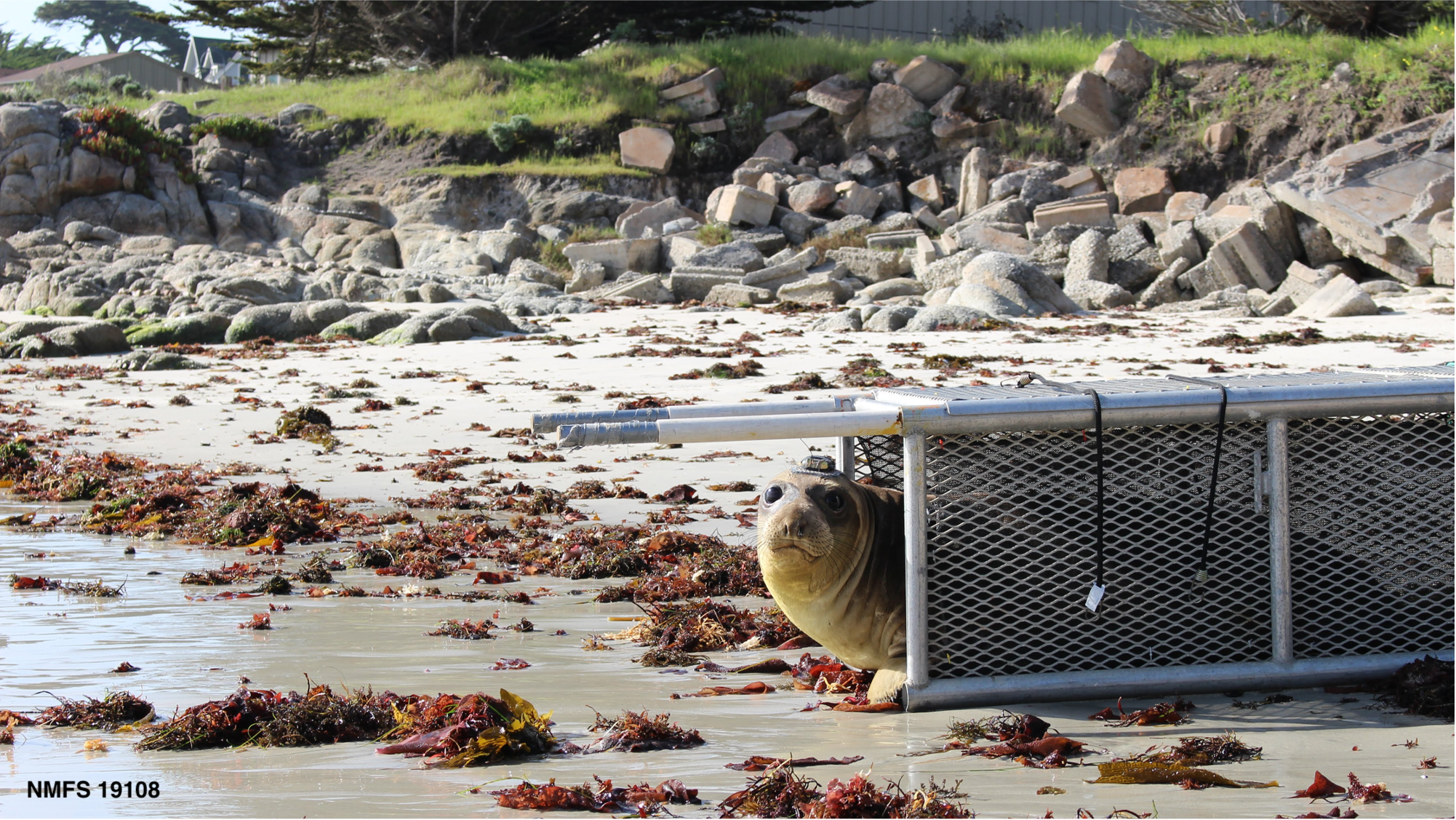"Research handling effects on stress hormones, blood parameters, and heart rate in juvenile northern elephant seals (Mirounga angustirostris)"
A Thesis Defense by Lauren Cooley
Zoom | Live-Stream | May 9th, 2022 at 12:00 pm pst
Bio
Lauren Cooley is a graduate student in the Vertebrate Ecology Lab at Moss Landing Marine Labs (MLML). She received her BS in Animal Science from Cornell University in 2016 and completed internships at the Alaska SeaLife Center and Florida Fish & Wildlife Conservation Commission. After two years working as a marine mammal and sea turtle stranding technician at the Institute for Marine Mammal Studies in Gulfport, Mississippi, Lauren moved to California to join Dr. Gitte McDonald's lab group in 2018. Her research interests include the ecology, physiology, and conservation of marine mammals and sea turtles with a focus on animal welfare.
For her master's thesis, Lauren investigated the effects of research handling activities on stress levels in juvenile northern elephant seals using hormone, blood parameter, and heart rate data. She also worked as the Data Manager and later Stranding Coordinator for the MLML Marine Mammal & Sea Turtle Stranding Network. In addition to her research work, Lauren is passionate about science communication and served as MLML Social Media Coordinator, Editor of the MLML Drop-In Blog, and Outreach Chair for the Vertebrate Ecology Lab. In February 2022, Lauren moved back east to Cape Cod, Massachusetts to begin a new job as a Stranding Biologist with the International Fund for Animal Welfare (IFAW). She looks forward to a long career in the always exciting marine mammal stranding field and is very thankful for the opportunity to use her fieldwork and research skills in this new conservation-focused role.
Thesis Abstract
Wildlife researchers must balance the need to safely capture and handle their study animals to sample tissues, collect morphological measurements, and attach dataloggers while simultaneously ensuring their results are not confounded by stress artifacts caused by handling. To determine the physiological effects of research activities including chemical immobilization, transport, instrumentation with biologgers, and overnight holding on a model marine mammal species, I collected hormone, blood chemistry, hematology, and heart rate data from 19 juvenile northern elephant seals (Mirounga angustirostris) throughout a translocation experiment. Across my six sampling timepoints, cortisol and aldosterone data revealed a moderate hormonal stress response to handling that was accompanied by minor changes in hematocrit, blood glucose, and blood lactate, but not ketone bodies or erythrocyte sedimentation rate. I also performed the first assessment of heart rate as a stress indicator in this species and found that mean heart rate, interbeat interval range, and apnea-eupnea cycles were influenced by handling. However, by the time seals were recaptured after several days at sea, all hormonal and hematological parameters had returned to baseline levels and 95% of study animals were resighted in the wild up to two years post-translocation. Together these findings suggest that while northern elephant seals exhibit mild physiological stress responses to handling activities in the short term, they recover rapidly and show no long-term deleterious effects, making them a robust species for ecological and physiological research.



